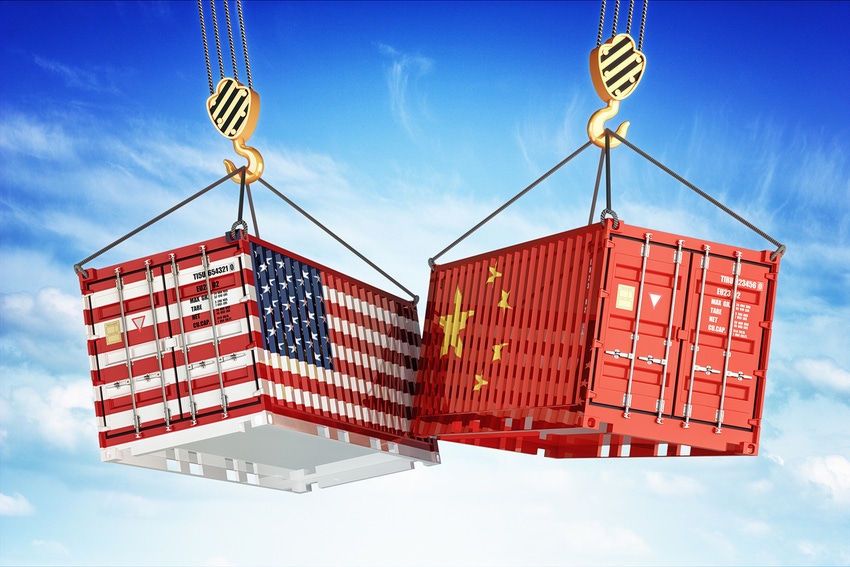Congress holds power to limit Trump's tariff authority
Flinchbaugh says trade war needs to end, and Congress has power to do it.

“We need to end this trade war now,” Kansas State University agricultural policy economist Barry Flinchbaugh said. “It’s time to admit it was ill-conceived and see it was never going to work and end it.”
Flinchbaugh, who is known for not mincing words on political advice, told audience members at a Farm Foundation Forum on Feb. 5 that “putting tariffs on aluminum and steel was stupid,” and the agriculture industry has been an innocent bystander.
"History shows that no one wins with trade wars; everybody loses. Sales that have not been made are lost. Simply like losing sleep, you can’t make it up," he said.
“We have a trade war with Canada under the guise of national security because Congress authorized that many years ago. That’s ludicrous,” Flinchbaugh said.
“Congress can end that tomorrow,” he said, noting that Congress isn’t helpless; it just needs some fortitude. “If you’re going to handle authority as irresponsibly as [President Donald Trump has] handled it, you should have that authority taken away,” he added.
During his "State of the Union" address on Feb. 5, Trump asked Congress to pass legislation from Rep. Sean Duffy (R., Wis.) that would actually expand his power to impose tariffs in response to other nation’s duties. However, there is growing support to follow Flinchbaugh’s advice of reducing Trump's authority to enact tariffs.
A bipartisan group led by Sen. Rob Portman (R., Ohio) plans to file legislation that would scale back Trump’s tariff authority and restore the power of Congress to block duties for national security reasons.
Sens. Pat Toomey (R., Pa.) and Mark Warner (D., Va.) also recently introduced legislation to restore Congress’s constitutional trade responsibilities and abolish what they believe are “costly and burdensome taxes on imported steel and aluminum.”
Don’t count out more trade aid
An attempt to correct part of retaliatory impact of the trade war includes the Market Facilitation Program payments. Flinchbaugh said, "Certainly, farmers appreciate them and need them, but they are grossly insufficient."
The U.S. Department of Agriculture reported that as of Feb. 4, it has paid out $6.41 billion to farmers under the trade aid payments. The top five states to receive payments include Illinois, Iowa, Kansas, Minnesota and Nebraska. The top five commodities include soybeans, corn, wheat, dairy and sorghum.
Flinchbaugh said just because the President said there won’t be any more trade mitigation payments doesn’t mean there won’t be. He said the payments to farmers are estimated at $7-9 billion total, and the trade war’s impact on farm income is expected to bring another drop of roughly the same.
He said he feels that those in agriculture have enough influence in Congress, and the agricultural communities may be able to get a remedy of some sort. “I don’t think they’ll throw us to the wolves, so to speak,” Flinchbaugh said.
Farmers are becoming more vocal about this trade war. “They’re no longer accepting this out of loyalty. You don’t hear the phrase, ‘We’ll take this short-term pain for long-run gain. They’ve discovered there is not a long-run gain,” Flinchbaugh said.
China deadline looms
Trump announced that he will be in Vietnam at the end of February, and he may also include a side meeting with China's President Xi Jinping. March 1 is the deadline for reaching a new deal with China to avoid tariffs increasing from 10% to 25%.
Tariffs Hurt the Heartland released a new study Wednesday that warns of the further economic damage of an escalated trade war. The report, which was prepared by Trade Partnership Worldwide LLC, shows that the tariff increase to 25%, coupled with the tariffs already in place and retaliation, will reduce employment by more than 934,000 jobs, cost the average family of four $767 and reduce gross domestic product (GDP) by 0.37%.
The study also looked at the combined impacts of all of the tariffs the Trump Administration has threatened to impose. The report warns of the consequences of a tariff hike to 25%, combined with auto tariffs, tariffs on all remaining imports from China and retaliation. According to the study, U.S. employment would be reduced by more than 2.2 million jobs, the average family of four would lose their tax reform savings and pay $2,389 more for goods and services and GDP would drop by more than 1%.
About the Author(s)
You May Also Like





